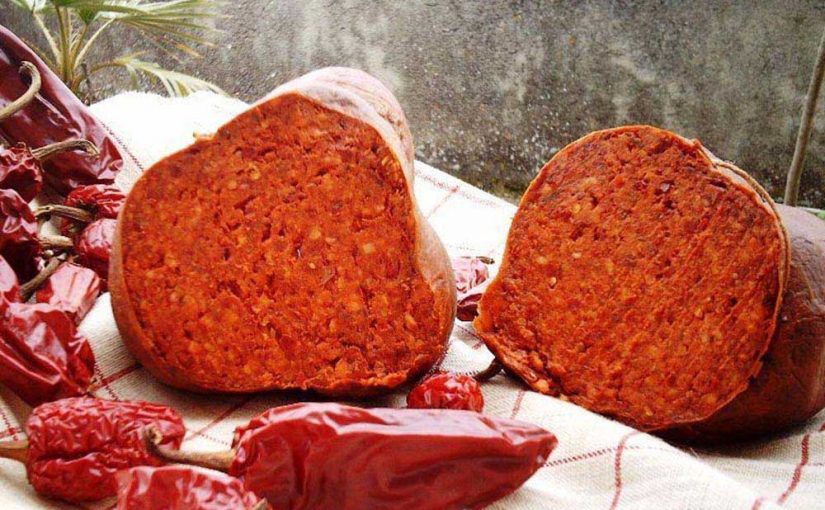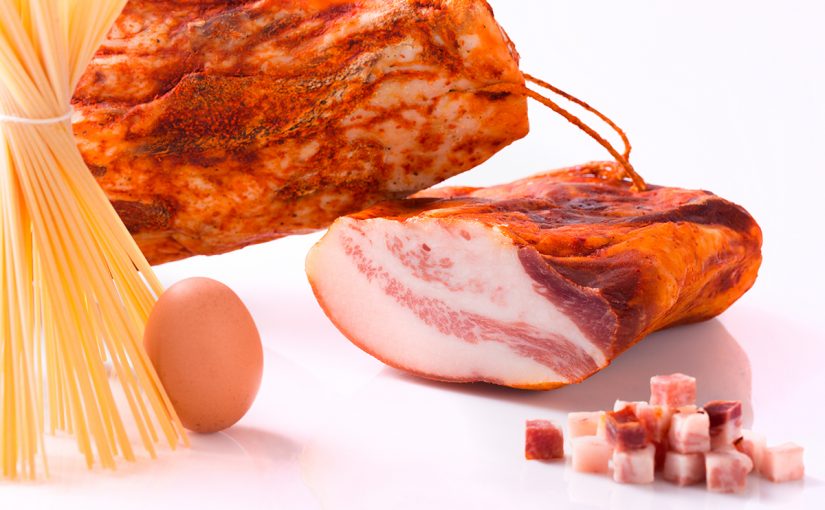29.3.2018
SHAPE:
This spicy sausage is one the more known cream of salami in Italy. Inside the Mediterrean basin it has great similarity only with French Andouille (a coarse-grained sausage made with pork, intestines or chitterlings, pepper, wine, onions and seasonings, of generally about 25 mm in diameter). In Calabria, instead, it is one of main types of salami, and got a round shape of various sizes. External color brown; color red interior.
INGREDIENTS:
-Pork
-Salt
-Spicy pepper
-Spices, natural aromas
-Dextrose
-Fennel
-E 301 antioxidant
-E 250, Conservative
-E 252 Conservative
PRODUCTIVE PROCESS:
Chopping, dough with ingredients, bagging, seasoning.
MINIMUM HOLDING TIME (TMC)
- Under Empty: 120 dd
- Recommended storage conditions, Temperature: +3/+6°C
- Transport temperature +5/+7°C
- Shelf life 120 dd
NUTRITIONAL INFORMATION:
- Proteins: 19.23%
- Carbohydrates: 2.90%, of which Sugars 2.50%.
- Fat: 35.37%, of which Saturated 10.81%
- Salt 3.79%
- Energy value: 407 Kcal or 1,635 Kjoule.
ALLERGEN LIST (usually absent):
-Cereals containing gluten (wheat, rye, oats barley, spelled, kamut or their hybridized strains)
-Crustaceans or crustaceans
-Eggs and egg products
-Fish and fish products
-Peanuts and peanut products
-Soya and soy products
-Milk and milk products
-Nuts
-Molluscs and mollusc products
-Lupine and lupine based products


